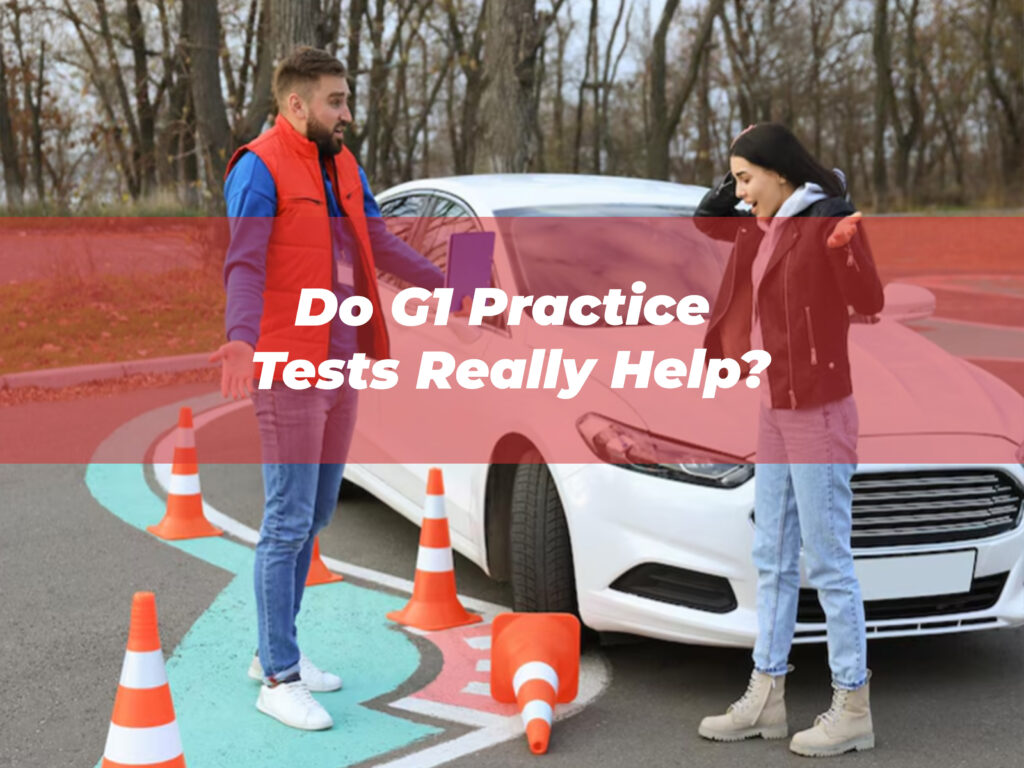Driving is an essential life skill, but mastering it under varying conditions is what sets confident and capable drivers apart. One of the toughest challenges new and experienced drivers face is nighttime driving. The reduced visibility, glare from oncoming headlights, and overall change in driving conditions often make night driving more intimidating than daytime travel. However, taking night driving lessons can be a game-changer for improving your skills and confidence behind the wheel.
This blog will cover the challenges of driving at night, the benefits of taking specialized lessons, actionable tips for excelling, and how these lessons enhance your overall safety awareness.
The Challenges of Night Driving
Driving at night presents a unique set of obstacles that require extra focus, preparation, and skill. Here are some of the common challenges most drivers face after sundown.
1. Reduced Visibility
Darkness significantly limits how far and how clearly you can see. Visual clarity, depth perception, and peripheral vision are all compromised in low-light conditions. This makes it harder to spot hazards such as pedestrians, animals, or debris on dark roads.
2. Glare from Oncoming Vehicles
The bright headlights of vehicles coming toward you can be blinding, especially if the high beams are on. This creates glare that temporarily affects your ability to see the road ahead.
3. Driver Fatigue
Nighttime is when your body naturally begins to wind down. Driving during these hours is often accompanied by increased drowsiness, which can reduce your reaction time and impair decision-making.
4. Greater Likelihood of Impaired Drivers
Statistics show that there’s a higher risk of encountering impaired drivers at night, particularly during late Night Driving Lessons. This demands increased vigilance and situational awareness.
5. Limited Road Marking Visibility
Road markings can be difficult to spot at night, particularly on roads with inadequate street lighting. This makes it harder to maintain a safe lane position or anticipate upcoming curves.
The good news? These are all issues that can be addressed with the right preparation and practice, which is exactly where night driving lessons shine.
The Benefits of Night Driving Lessons
Enrolling in night driving lessons is one of the best investments you can make in your long-term Night Driving Lessons abilities. Here’s why.
1. Learn to Navigate Realistic Nighttime Challenges
Night driving lessons provide hands-on experience with all the difficulties mentioned earlier. Practicing in a controlled environment with an experienced instructor means you’ll learn how to handle reduced visibility, glare, and other nighttime hazards effectively.
2. Build Confidence Behind the Wheel
Night driving can feel Night Driving Lessons if you’re unprepared. Lessons allow you to face these challenges one step at a time, boosting your confidence in your ability to drive under low-light conditions. Armed with practical skills, you’ll become less anxious and more comfortable on the road after dark.
3. Improve Situational Awareness
During night driving lessons, you’ll gain a stronger understanding of how to assess and adapt to your surroundings in real-time. This includes identifying hazards sooner, spotting subtle movements in your peripheral Night Driving Lessons, and maintaining safe distances.
4. Fine-Tune Your Driving Techniques
An experienced instructor can identify areas where you might need improvement, such as braking, cornering, or adjusting your speed for road conditions. Personalized feedback will help sharpen your skills, making you a safer and more efficient nighttime driver.
5. Enhance Your Reaction Times
Night driving lessons typically involve practicing defensive driving techniques that prepare you for unpredictable scenarios. This might include sudden stops, swerving to avoid hazards, or dealing with erratic behavior from other drivers. Over time, these lessons will help you respond faster and more effectively in real-life situations.
6. Gain a Competitive Edge
For learner drivers, passing the road test isn’t the end of the Night Driving Lessons. If you truly want to excel at driving, mastering the art of night driving gives you an edge over other drivers who haven’t had the same experience. Skills learned during night lessons make you a more versatile and capable motorist.
Tips for Improving Your Night Driving Skills
Whether you’re already enrolled in night driving lessons or considering them in the future, there are some practical tips that will help you build your confidence and competence.
1. Use Your Headlights Effectively
Headlights are critical for safe night driving, but it’s important to use them correctly. Always:
- Turn on your headlights at dusk, even before it’s completely dark. This makes your vehicle more visible to others.
- Ensure your high beams are used only when there’s no oncoming traffic, as they can blind other drivers.
- Keep your headlights clean and properly aligned to maximize visibility.
Tip for learners: Have an instructor guide you on when and how to use high beams to avoid dazzling other drivers.
2. Keep a Safe Following Distance
At night, depth perception is reduced, making it harder to judge Night Driving Lessons accurately. To offset this, maintain a greater following distance from the vehicle ahead. This allows for better reaction time if they suddenly brake or swerve.
3. Adjust Your Speed Accordingly
While it’s tempting to drive at the same speeds you use during the day, slower speeds are often safer at night. Limited visibility means less time to react to unexpected obstacles. Practice adjusting your speed based on lighting conditions and traffic flow.

4. Avoid Staring into Headlights
Glare from oncoming vehicles can hinder your ability to see clearly. To counteract this, look slightly to the right edge of your lane and use road markers to guide you. With practice, you’ll learn how to balance focusing on the road ahead without being blinded.
5. Keep Your Windshield Clean
Smudges and dirt on your windshield can amplify glare and reduce your visibility at night. Regularly clean both the inside and outside of your windshield to minimize distractions.
6. Stay Alert and Rested
Fatigue is a major factor in nighttime accidents. Ensure you’re well-rested before driving at night, and watch for signs of drowsiness such as yawning, heavy eyelids, or drifting out of your lane. If you start to feel tired, pull over and take a break.
7. Regularly Check Your Vehicle’s Lights
Make sure all exterior and interior lights are working properly. Brake lights, turn signals, and tail lights are especially important for communicating your intentions to other drivers on dark roads.
How Night Driving Lessons Build Confidence
Night driving lessons are about more than just mastering skills. They instill confidence that extends to all other aspects of your driving. Here’s how they achieve that:
1. Real-World Practice
There’s no substitute for hands-on experience. Lessons improve your familiarity with night driving conditions, meaning you’ll feel more prepared when real-life scenarios arise.
2. Positive Reinforcement
Receiving constructive feedback and encouragement from a Night Driving Lessons instructor boosts your confidence. Knowing you’re making progress provides a sense of accomplishment.
3. Improved Anxiety Management
Many new drivers feel anxious about night driving because of the unknowns. Lessons expose you to these situations in a gradual, supportive way, helping you overcome fears and develop a calm mindset.
4. Safer Habits
Learning nighttime safety protocols ensures you’re less likely to panic when faced with unexpected challenges. The habits you build during lessons will carry over into other driving scenarios as well.
5. Enhanced Safety Awareness
Working on hazard detection, defensive driving, and situational judgment gives you a greater sense of control behind the wheel. With improved safety awareness, you’ll naturally feel more confident and capable.
When Should You Consider Night Driving Lessons?
Night driving lessons can benefit a wide range of learners. Here’s when they might be a valuable addition to your training:
- Soon After Getting Your License: To build confidence early, supplement traditional lessons with nighttime-specific practice.
- Before a Road Test: If your road test might include nighttime conditions, practicing with an instructor sets you up for success.
- When Transitioning to a New Area: If you’ve moved to a location with less street lighting or more rural roads, lessons help you adapt.
- If You Haven’t Driven at Night in a While: Even experienced drivers can benefit from a refresher course to regain comfort in nighttime driving.
Wrapping Up
Night driving is a vital skill that requires practice, Night Driving Lessons, and preparation to master. Taking night driving lessons is an excellent way to tackle the unique challenges of low-light conditions while building confidence and ensuring your safety on the road.
From managing reduced visibility to fine-tuning your defensive driving skills, these lessons cover everything you need to excel after dark. If nighttime driving currently feels daunting, know that it’s just another aspect of driving you can conquer with the right guidance and experience.
By understanding the challenges, practicing the tips provided, and working with a qualified instructor, you’re setting yourself up for success—not just at night, but in any driving situation. Are you ready to take your driving skills to the next level? Enroll in night driving lessons today and see the difference they can make.










